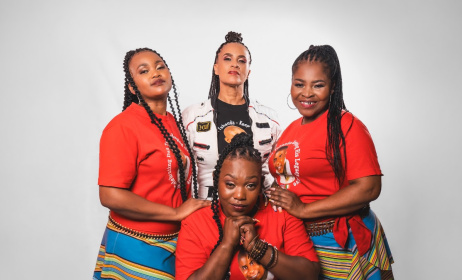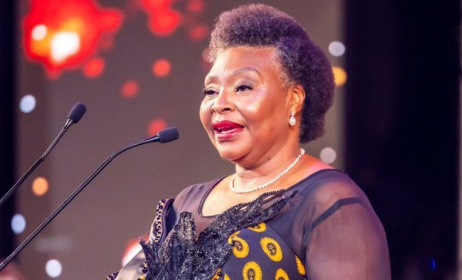Editorial: Concert crime is killing SA's creative culture
Monday's reports of muggings and violent robberies after the conclusion of Global Citizen Festival in Johannesburg have left a sour taste in the mouth of Music In Africa's staff, who followed discussions closely on radio and social media throughout the day.
 Music fans at the recently held Global Citizen festival in Johannesburg, South Africa. Photo: Global Citizen
Music fans at the recently held Global Citizen festival in Johannesburg, South Africa. Photo: Global Citizen
Many of the accounts shared were harrowing to say the least and will stay etched on the minds of the concertgoing public for a long time to come. These are honest people who look forward with zest and excitement to events such as Global Citizen Fest and place their trust in the authorities to provide safety and security from the time they enter the stadium precinct until the time they leave.
The failure of policing in South Africa has been known for many years. Even from before the advent of democracy in 1994, South Africa's police services have had a black mark beside their name for either using excessive force on ordinary citizens or for being totally absent when most needed. The Marikana massacre in 2012 is a sore reminder of how little things have changed in South African policing methodology.
I should not digress too much into an analysis of the failure of South African politics, which ultimately informs the hierarchy of importance in the country. Nonetheless, it's painfully obvious that in this hierarchy, safety and security, much like education, lingers somewhere at the bottom of the list, whereas rapacious propaganda campaigns ahead of election season dominate the top.
I should rather talk about the lasting effects of crime in a country where the arts need much development before they can be considered to be on par with the rest of the world. A few years ago, I wrote a soft investigative piece about concert crime in South Africa. I interviewed some of our top event organisers about the realities of crime at public events. All of them said that their budgets to keep crime at bay had doubled, if not tripled, over the past decade, and they still had no real strategies on how to beat the scourge.
Criminals were always one step ahead, they said, and the organisers could never rely on the police to deploy officers for safety and crowd-control purposes. This failure saw syndicates cleaning out concertgoers' pockets and handbags at Swedish electro band Little Dragon's street concert in Newtown, Johannesburg, in 2015, and again during dub act Fat Freddy's Drop at The Sheds a year later. Two years ago, Johannesburg's most important live venue, Bassline Newtown, closed its doors and took sanctuary at the Lyric Theatre at the super-commercial Gold Reef City casino and hotel complex. Despite millions of rand and various efforts to lift Newtown aesthetically, much of the concertgoing public will be boycotting the precinct until it is safe to walk its streets.
Graver still than the economic impact concert crime has on events and venues is the cultural and psychological effects it has on young people. In the same piece that I wrote all those years ago, I hypothesised that crime at concerts would be at least partly responsible for creating a generation of helicopter parents and alienated youngsters who would much rather experience the world from their screens. I still have the same, now amplified, belief.
In a 2004 TED Talk, Hungarian-American psychologist Mihaly Csikszentmihalyi said: "It's interesting if you think about the civilizations that we look up to as having being pinnacles of human achievement, whether it's China, Greece, the Hindu civilization or the Mayas and the Egyptians. What we know about them is really about their ecstasies, not about their everyday life. We know the temples they built where people could come to experience different realities, we know about the circuses, the arenas, the theatres. These are the remains of civilizations and they are the places where people went to experience life in a concentrated, more ordered form."
Although taken somewhat out of context, as Csikszentmihalyi was talking about happiness, flow and the suspension of consciousness while engaging in high forms of creativity, the above quote nevertheless describes the importance of 'places of ecstasy' in the socialisation of humans. Live concerts are the perfect breeding grounds for creativity, where young people can be inspired to take up music. Others use live concerts as classrooms to learn first-hand about the intricacies of stage presence and production.
If South Africa's authorities continue neglecting the public, they would be directly responsible for the failure to bring up a strong generation of free-thinking individuals who can tackle the almost impossible demands of the competitive free market and culturally globalised world.
Kalin Pashaliev is the editor of Music In Africa































Comments
Log in or register to post comments